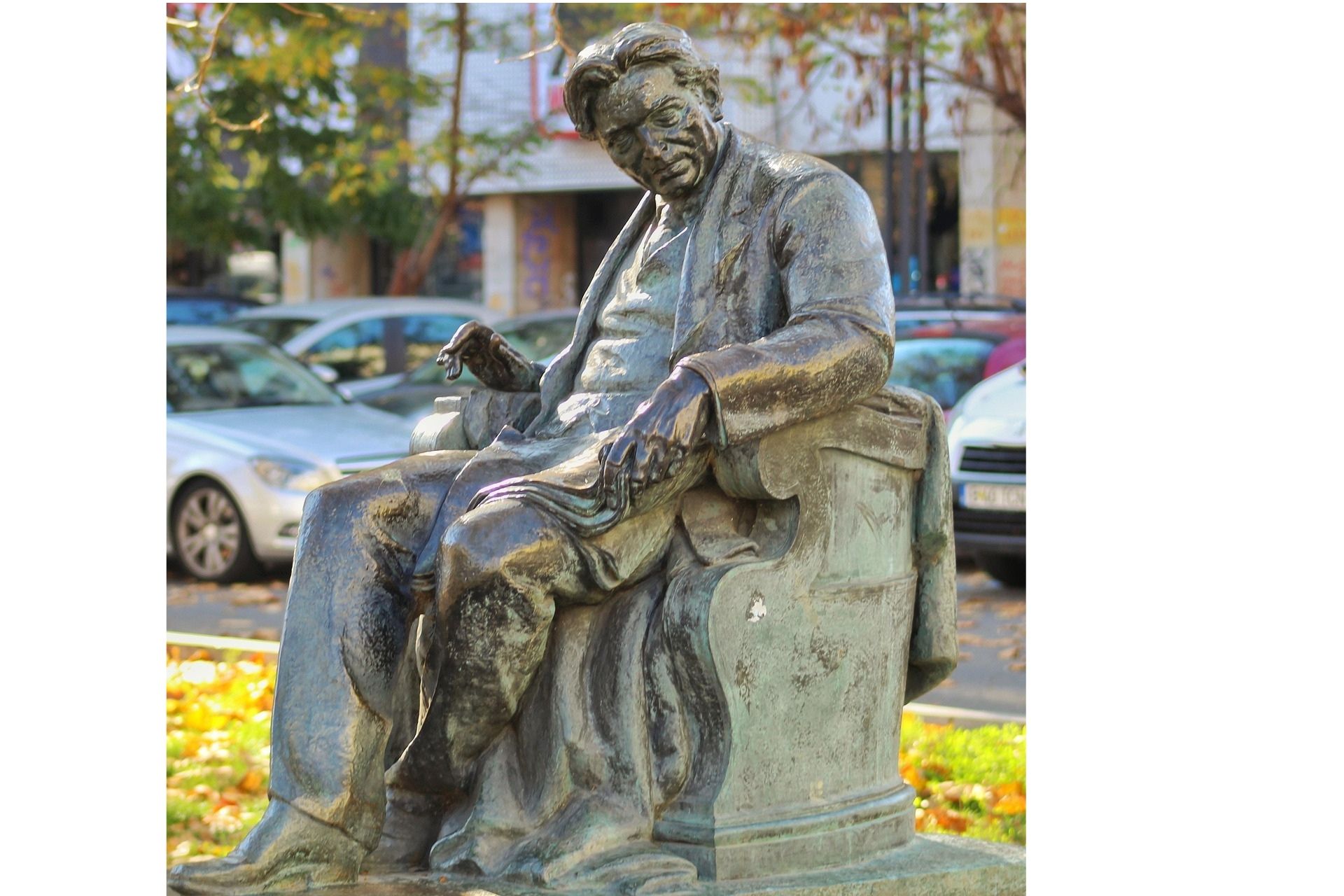
Today’s politics has me thinking about George Orwell’s 'Nineteen Eighty-Four', the dystopian novel warning about the threat of totalitarianism. What I did not know was that Orwell volunteered to fight against General Francisco Franco’s attempt to overthrow Spain’s elected government back in nineteen thirty-six. He was seriously wounded which means the book was almost never written.
George Orwell was the pen name used by Eric Albert Blair, who was part of Europe’s anti-fascist movement and left England to join the POUM party in Spain and fight on their side. After little training, he was assigned to a hilltop west of Barcelona. One morning, Orwell was walking in the trench when he describes what happened next: “Suddenly, in the very middle of saying something, I felt – . . . the sensation of being at the center of an explosion…with it a sense of utter weakness, a feeling of being stricken and shriveled up into nothing….”
He had been shot in the neck, hit by a seven mm bore copper-jacketed Spanish Mauser bullet, from one hundred seventy five yards away. Orwell survived, thanks to the lead round being encased in copper, keeping the slug from deforming and transferring energy to tissue. It also missed his neck’s major arteries, passing clean through.
Back in England, Orwell eventually wrote two famous novels of the twentieth century 'Animal Farm' and 'Nineteen Eighty-Four'. Sadly, one year later, Orwell died of tuberculosis in nineteen fifty cutting short what might have been a much longer writing career.
More Information
War, politics, and voice: the vocal fold paralysis of George Orwell
In 1936, like many individuals who felt the menace of fascism, George Orwell traveled to Spain to lend his support to the cause of the Republic, battling a right-wing coup. Spain, during its Civil War, was an eye-opening experience for him, yielding insights that allowed, and even compelled him to write Animal Farm and 1984. Spain was also a close brush with death. In May of 1937, in a trench on a windswept ridge near Huesca, Orwell was shot through the neck by a sniper, leaving him with a paralyzed vocal fold.
George Orwell and the Spanish Civil War: A brush with death
Robert Capa’s “The Fallen Soldier” is the iconic photograph of the Spanish Civil War (1936–1939). The image conveys the essence of the struggle: a lightly armed civilian soldier dying in a burst of machine-gun fire from Franco’s Fascist-backed Falangists. The photograph embodies the brutality of the wars of the twentieth century and starkly depicts the frailty of the human condition and the unanswerable questions we have about human consciousness at the moment of death. In Homage to Catalonia, George Orwell’s account of his participation in the Spanish Civil War, he provides a personal perspective on these issues in a description of what he experienced when he was shot by a sniper on the Aragon Front.
The Truth and Mister Blair
Being The Life and Times of George Orwell
With particular regard to his struggle
With telling the truth.